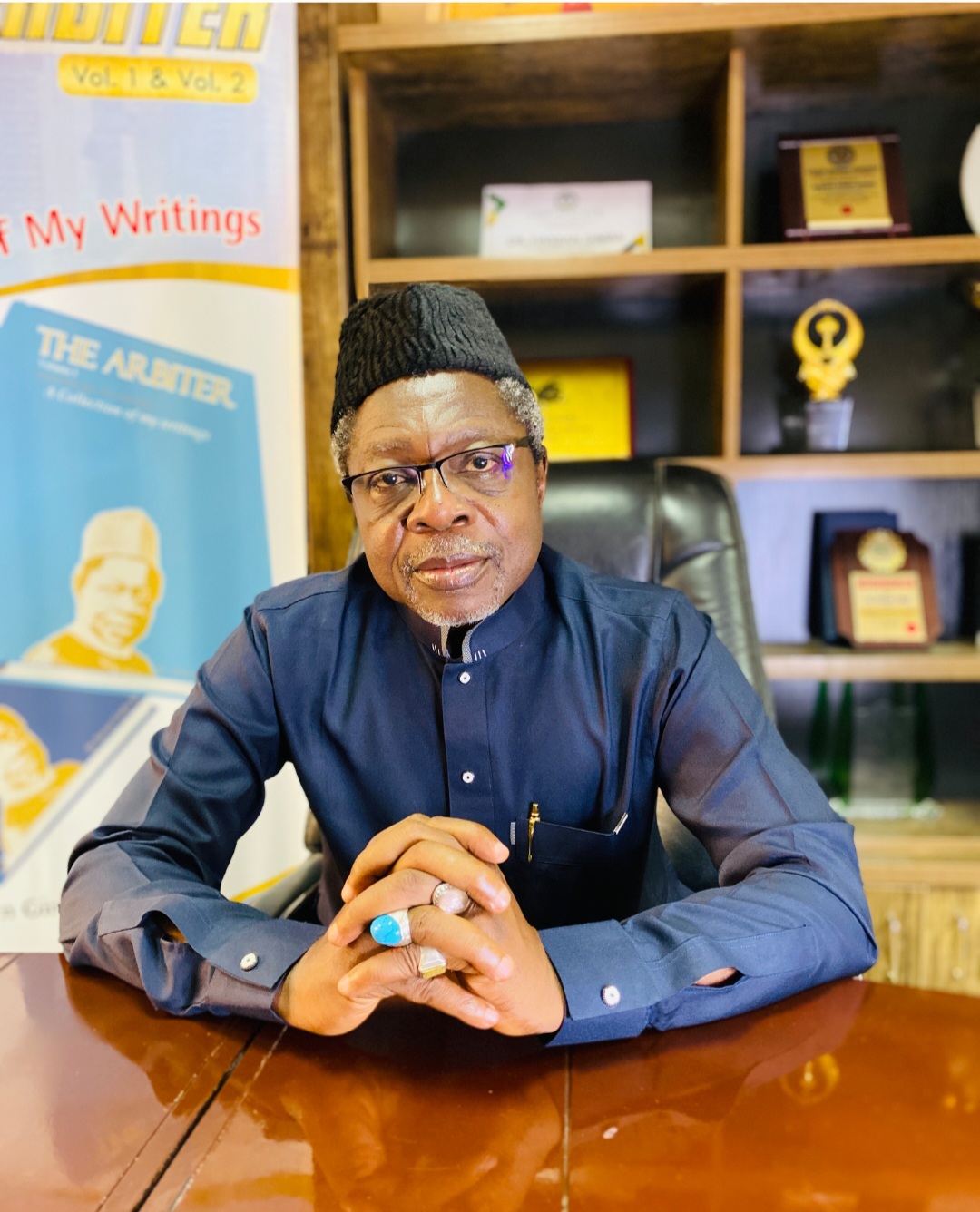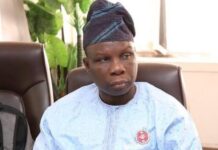The Arbiter
There is a kerfuffle over President Muhammadu Buhari’s statement recently that the rule of law is secondary to national Interest.
In a keynote address delivered at the beginning of the 58th annual conference of the Nigerian Bar Association on Sunday, August 26, 2018, President Buhari spoke on various issues, most prominent of which was his view about the rule of law on issues of national interest.
“Rule of Law must be subject to the supremacy of the nation’s security and national interest. Our apex court has had cause to adopt a position on this issue in this regard and it is now a matter of judicial recognition that where national security and public interest are threatened or there is a likelihood of their being threatened, the individual rights of those allegedly responsible must take second place, in favour of the greater good of society,” he said.
Expectedly, the president’s statement has elicited a torrent of reactions from civil society organisations, professional bodies and commentators, including human rights activists. Even though some of the comments are caustic, they were generally cautionary and alarm sounding.
But what is National Interest and what is Rule of Law? Are they complementary or can one be sacrificed for the other?
National interest, often referred to by the French expression ‘raison d’État’ (reason of state), is a country’s goals and ambitions, whether economic, military, or cultural. According to Hans Joachim Morgenthau (February 17, 1904 – July 19, 1980), one of the major twentieth-century figures in the study of international politics, “The meaning of national interest is survival—the protection of physical, political and cultural identity against encroachments by other nation-states”.
The rule of law is the restriction of the arbitrary exercise of power by subordinating it to well-defined and established laws. According to the BusinessDictionary.com, it is the absolute predominance or supremacy of ordinary law of the land over all citizens, no matter how powerful.
Professor A. V. Dicey, a UK law professor, first expounded it in his book, Introduction to the Study of the Law of the Constitution in 1885. It is based on three principles: (1) Legal duties, and liability to punishment, of all citizens, is determined by the ordinary (regular) law and not by any arbitrary official fiat, government decree, or wide discretionary powers, (2) disputes between citizens and government officials are to be determined by the ordinary courts applying ordinary law, and the (3) fundamental rights of the citizens (freedom of the person, freedom of association, freedom of speech) are rooted in the natural law, and are not dependent on any abstract constitutional concept, declaration, or guaranty.
However, the president’s argument was “Our apex court (Supreme Court) has had cause to adopt a position to the effect that where there is a threat to national security and public interest, the rights of individual allegedly responsible for the situation will be subjugated to the public good”.
The president’s argument may have been informed by the apex court’s pronouncement in Mujahid Asari Dokuba vs. the Federal Government of Nigeria regarding bail, on Friday, June 8, 2007.
However, the argument of the prosecution was accepted by the learned justices based on presented incontrovertible evidence that could stand in the face of the laws of the land: Dokubo had threatened, nay, vowed, to wage war against the country.
In the case of Sheikh Ibrahim El-Zakzaky and Col. Sambo Dasuki, for instance, the courts were not convinced by the arguments of the prosecution based on, perhaps, weak and unconvincing evidence that could not stand in the face of the laws of the land.
Professor Dicey, the theorist who popularised the rule of law, held that an individual, or the whims and caprices of a government cannot define a national interest that is in conflict with the rule of law without convincing the body, that is, the courts, that would give it legal backing.
President Donald Trump, during his campaign for the U.S. presidency, promised a lot of things, including banning people from certain countries, all in the name of America’s national interest. And that was among the first tasks he set out to accomplish after being sworn in as the 45th president of that country.
“As president”, he said, “I must act to protect the security and interests of the United States and its people” when proclaiming his travel ban on citizens of some seven or so countries. However, the country’s courts stopped his government from giving teeth to his Executive Order(s) which was immediately complied with by the institutions, especially the Immigrations and Homeland Security, until after he succeeded in overturning their pronouncements at the Supreme Court.
Everyone knows America is at the risk of attacks from citizens of some of the banned countries yet despite the tempestuous nature of its president, the country’s institutions subjected themselves to the rule of law. You see, without the rule of law, there would be no nation to protect its interest.
But with Nigeria, our leaders, whether at the national or state level, tend to see themselves as the state they superintend. Therefore, they tend to see themselves as the entity under them personified. And that’s why they are run like a family heirloom. They cannot distinguish between their personal interests and national interest.
When General Ibrahim Badamasi Babangida and co. overthrew and detained Buhari in 1985, they did so based on ‘national interest’ as defined by them and not the courts. But with all that came to light and all came to pass thereafter, it would be interesting to know if the president accepted his incarcerators’ definition of national interest.
On January 24, 1980, Nigerian immigration officers arrested and deported Alhaji Shugaba Abdurrahman Darman to Chad based on a deportation order signed by Alhaji Bello Maitama, the then minister of Internal Affairs. Shugaba Darman was a member of the Great Nigeria Peoples Party (GNPP) which was the ruling party in Borno State then and the majority leader in the state House of Assembly. He was a thorn in the flesh of the National Party of Nigeria (NPN), the party ruling at the centre which Maitama Bello belonged to.
Being a politically motivated case, the NPN-led federal government ‘imported’ an old Chadian woman who came to court crying profusely that Darman was her long lost son and that she wanted him back.
Of course Darman denied her straightaway, telling the court that his mother, though blind, resided in Maiduguri and was well known. The GNPP’s legal team led by Chief D. O. A. Oguntoye ushered in his witness – the old, blind, well known Maiduguri-based Kanuri woman who identified Darman by simply touching him.
The long and short of it is that the federal government lost the case at the Maiduguri High Court, lost its appeal in Kaduna and finally lost at the Supreme Court which was then in Lagos.
One thing of note is that the Shehu Shagari-led federal government abided by all the court processes from the state High Court to the appellate court in Kaduna, culminating in the Supreme Court judgment. It did not disregard any of the lower courts “because it had appealed its judgement or intended to do so” (as we hear these days) despite the fact that it purportedly deported Darman based on “national interest”. It respected the rule of law.
I have gone to this length to show how the democratically elected government of Shehu Shagari considered national interest (even though skewered) within the ambit of the rule of law.
The state burial accorded US Senator John McCain should teach us a lesson. His differences with President Trump is well documented (he even barred Trump from his funeral), yet he is receiving the highest possible final honour in the land, an honour even Trump himself cannot expect to get even if he died on the throne. Only 29 of America’s greatest statesmen had enjoyed this before McCain, meaning that most of US former presidents were not deemed fit enough. But if McCain were a Nigerian, he would have been denied his due; in fact he would be lucky not to be treated as an enemy of state for having the temerity to disagree with the president!
In a democracy, national interest cannot revolve around the whims and caprices of the holder of executive power; it must contain the institutional input of other arms of government, otherwise it tilts towards dictatorship.
So, our national leaders should stop hiding behind the excuse of ‘national interest’ when they want to circumvent the rule of law in order to pursue narrow agenda. They must remember that it is actually the rule of law that gave them the authority and legality to govern a nation whose interests are defined by it in the first place.
Follow the Neptune Prime channel on WhatsApp:
Do you have breaking news, interview request, opinion, suggestion, or want your event covered? Email us at neptuneprime2233@gmail.com






Although I believe in relativity of things, this column, from the first to the last word, is absolute. Any counter opinion is bias.
Thank you.